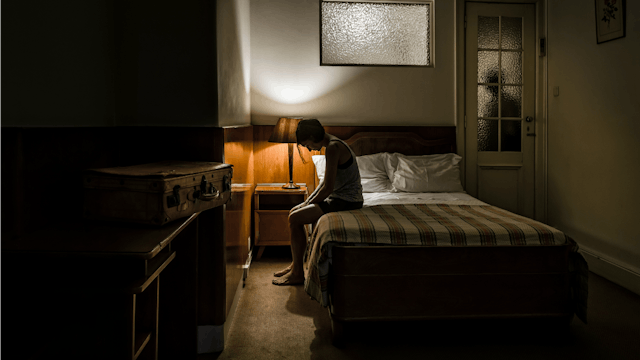Sometimes You Just Have To Lose The Argument

“I’m sorry. Let’s be best friends again.” The words of two eleven-year-olds, or the words of a husband and wife seven years into marriage?
Apologize when you don’t mean it. Lose the argument. I think this might be the secret to a successful marriage.
I haven’t always known this. I might have suspected it, but I was too selfish to make it a tenet of our life. But you learn things when you hold your child for the last time. When you walk into a hospital with your daughter gazing up at you and out of it with a lock of hair and an empty stroller, holding your husband’s hand. And if you have chosen, even a handful of times, to love each other more than yourself – if you have let your partner sleep when you are bone tired, if you have saved and shared the last bite of cake although it’s been a week without time for dessert, if you have given in, if you have apologized when you know you are right, if you have moved on because moving on brings love and obstinacy brings emptiness – if you have done any of these things for even a slight amount of time, then perhaps you will find yourselves where we are now.
Deeply in love together, deeply in grief together, apologizing left and right because the veil has been lifted — love matters more than being right. It always will.
There was no apologizing early on with our first child. We both needed to win, especially when it came to middle of the night wake-ups. There was no giving each other a break because love mattered more. I was tired. Only tired. There was no room for anything else. Our son had surgery at five months, and went from a sleep prodigy to a baby who woke crying on the hour. Every night.
At first I was concerned that surgery had not been successful or that he was in lingering pain, but once we established this was not the case, I was just tired. Mind numbingly exhausted and desperate for a night of sleep. I was angry and I just knew that I was the most tired.
After one particularly bad week (can one week with no sleep actually be worse than another week with no sleep?), my parents were planning to travel. The morning after they left, I turned to my husband and told him I was taking our son to their empty house for the week. “Then at least while you’re sleeping and I’m not, I don’t have to see it.”
It exploded into an hour-long argument about how I shouldn’t just leave for a week, about who was more tired, and about who deserved a night of sleep more.
Ultimately, I kept the same words, changed my tone, and tried to make myself seem generous. “I want you to sleep. I know you’re as tired as I am. We haven’t had an uninterrupted night, or even few hours, in recent memory. If I take him to my parents, at least one of us will be able to rest well.”
I don’t know that either of us really apologized, but the anger dissolved eventually. It wasn’t perfect, but that was the worst of the arguing. And we made it through, although my low-level resentment continued.
It’s okay to hate waking up over and over all night long; it’s a form of torture. But looking back, I also understand that I didn’t need to spend so much time feeling entitled, so much time being the most tired. I didn’t need to win at being tired.
And I did learn the lesson – or I almost did. It becomes ever so slightly easier to wake up on the hour when your child is dying. And two-and-a-half years later, our second child, our beautiful Bethie, was dying. 2 a.m. still felt like 2 a.m., but there was at least superhuman strength to be found in the silent overnight hours when the rest of the world was asleep. At least it was slightly easier for a while. Perhaps a better mother would have risen with every single cry full of only thanks for the noise and reassurance that Bethie had eluded death for one more hour. But when 8 weeks turned to 8 months, and I still hadn’t slept, I became too tired for only thanks. 99% purely thankful, 1% angrily wishing for sleep.
There was a brief standoff, and then my husband stepped in. “I’m sorry you’re staying up all night with her and I’m not. I’m sorry I didn’t wake up first when she cried. I’m sorry – I should be helping more.”
He apologized when I’m certain he didn’t mean it. He didn’t cause Bethie to wake five times every night. He didn’t sleep more soundly on purpose. He didn’t ask her to refuse a bottle. He didn’t want me to feel exhausted day-in and day-out.
He knew that I needed an apology, though, in order to maintain my sanity. Because we had grown older, wiser, gentler, in the time that had passed, he knew what I needed, and he chose that over being right.
I replied to him eventually. “I’m sorry for all of my anger. I’m sorry I’m taking this out on you.” He apologized, so I apologized.
We loved better.
We both lost the argument, and neither of us cared.
Months later, we lost Bethie. We are forever changed, and arguments are infrequent now, but they do still happen. In the midst of a recent one, I stopped and turned to my husband. “My heart is already broken without Bethie. I don’t want it to break more. I’m sorry. Let’s be best friends again.”
He apologized too.
I don’t remember why we were arguing.